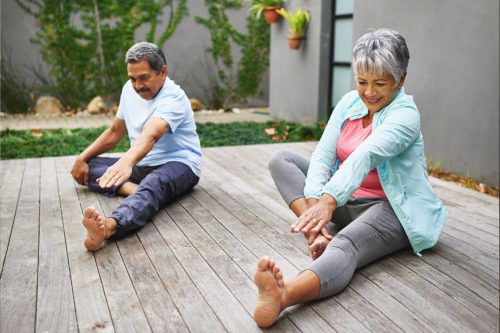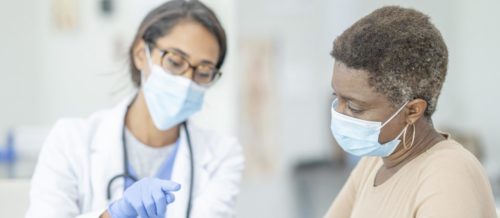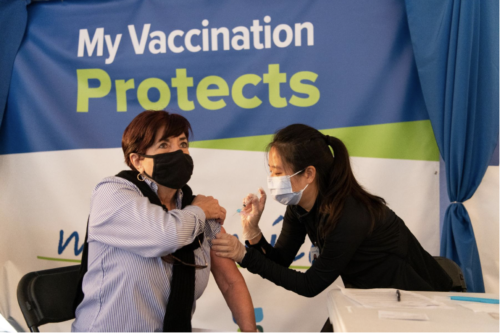We asked Dr. Raul Badillo, MD , a board-certified gastroenterologist at AdventHealth Winter Park and East Orlando, to explain this common disease and how to get a handle on it this summer. Diverticulitis occurs when bulging sacs appear in the lining of the intestine. These pockets can become infected or inflamed, leading to symptoms such as nausea, fever, constipation, diarrhea, cramping and pain in the abdomen. But that doesn’t have to slow you down this summer.
“Diverticulosis usually causes no symptoms unless one of the diverticula bleeds or becomes inflamed. This leads to either significant painless rectal bleeding or severe abdominal pain, usually in the left lower quadrant. Likely caused by high pressure in the intestine such as in constipation and a low-fiber diet, diverticulosis typically develops after age 40 and becomes more prevalent as we age. Almost everyone who reaches age 90 has diverticulosis,” says Dr. Raul Badillo.
How Is Diverticulitis Diagnosed?
One of the most prevalent signs of diverticulitis is a pain in the abdomen on the left side of the body that lasts longer than several days. It’s not nearly as common on the right side of the body, but that doesn’t mean it will never occur there. If pain lasts longer than a day or two, it could point to a symptom of diverticulitis versus a more common issue such as an upset stomach or constipation.
Pain is not the only symptom of this health issue. Nausea and vomiting, in addition to pain on the lower left side of the abdomen, is another sign of diverticulitis. Most patients who experience nausea or vomiting as a result of diverticulitis notice it occurs off and on for several days and is accompanied by pain. While these are two symptoms appear in any number of health-related issues, the presence of nausea and vomiting along with pain is a clue that suggests this condition. However, nausea can occur without vomiting and can still be a sign of diverticulitis.
Because the signs and symptoms are not especially unique to this health problem, it’s not always easy to diagnose diverticulitis. Your doctor will look for ways to rule out other common causes of these side effects. Diagnostic procedures can include an abdominal check, and women are asked to undergo a pelvic exam to rule out pelvic disease. If there is tenderness, the doctor will continue the exam to diagnose diverticulitis, then begin a treatment plan that’s right for you.
Additionally, “a colonoscopy is recommended after an episode of diverticulitis to rule out colon cancer especially if one has not been performed recently,” says Dr. Raul Badillo.
Fiber and Diverticulitis
Though common in well-developed countries, diverticular disease is virtually unknown in the poorer countries of Asia and Africa, where people subsist mainly on high-fiber vegetable-rich diets. Diverticulosis was unknown in this country too until the early 1900’s, when Americans began moving away from fresh-from-the-earth high-fiber foods and instead adopted diets replete with processed foods made from refined flour lacking the fibrous bran in whole grains.
As American diets became richer in meats, fat, sugar and highly refined processed foods, the plates had less and less room for fruits, vegetables and whole grains.
“Eating a high-fiber diet is the only current dietary recommendation for patients with diverticular disease,” continues Dr. Raul Badillo. Dietary fiber — both the soluble fibers found in foods like oats and many fruits and the insoluble ones in whole wheat, corn and virtually all plant foods — helps to keep the stool soft and easy to eliminate. Diets lacking in adequate fiber often result in hard stools and constipation, prompting those afflicted to exert excess pressure on the colon when attempting a bowel movement. It is this pressure, repeated over and over through the years, that is believed to be the cause of diverticular pouches.
What to Eat for Diverticulitis
In addition to all fruits and vegetables, foods made from whole grains — like whole wheat bread, brown rice and oats — and all the dried peas and beans (cooked, of course) are excellent sources of dietary fiber. The potential benefits of a high-fiber diet accrue not just to one’s digestion. Dietary fiber also helps to prevent heart disease and stroke by lowering blood levels of cholesterol, it helps to maintain a stable blood sugar level and thus prevent adult-onset diabetes, and it helps a person achieve and maintain a normal body weight.
Among fiber-rich foods, the National Institutes of Health lists apples and pears (4 grams in a medium-size fruit), acorn squash (7 grams per 3/4 cup of cooked squash), kidney beans (6 grams in 1/2 cup) and bran flakes (5 grams per 3/4 cup). Other good sources of fiber include cabbage, spinach, broccoli, carrots, lima beans and soy foods. And of course, all the fresh fruit and veggies of summer will help you round out your diet.
While improving the plant food content of the diet is the most desirable approach, for those who can’t eat enough high-fiber foods or for whom fiber-rich foods alone do not produce the desired outcome, there are now a number of over-the-counter fiber supplements available that can help. These products, mixed with liquid, supply 2–3.5 grams of fiber per tablespoon.
But take care when adding fiber to your diet. Do it gradually to reduce the risk of developing painful intestinal gas. Give your gut a chance to get used to the new menu gradually.
For more information about the Center for Health & Wellbeing, or to speak with Dr. Raul Badillo, MD, please click here or call 407-644-2492.






